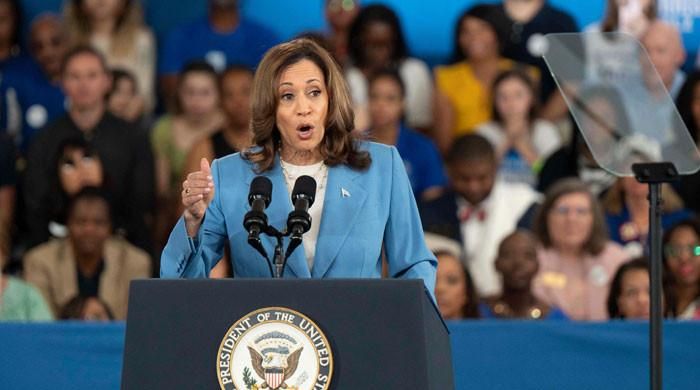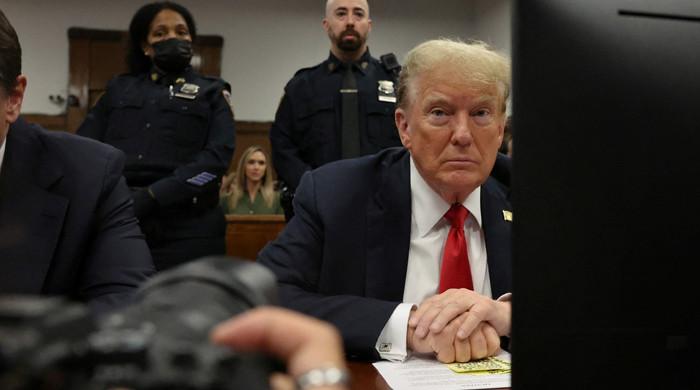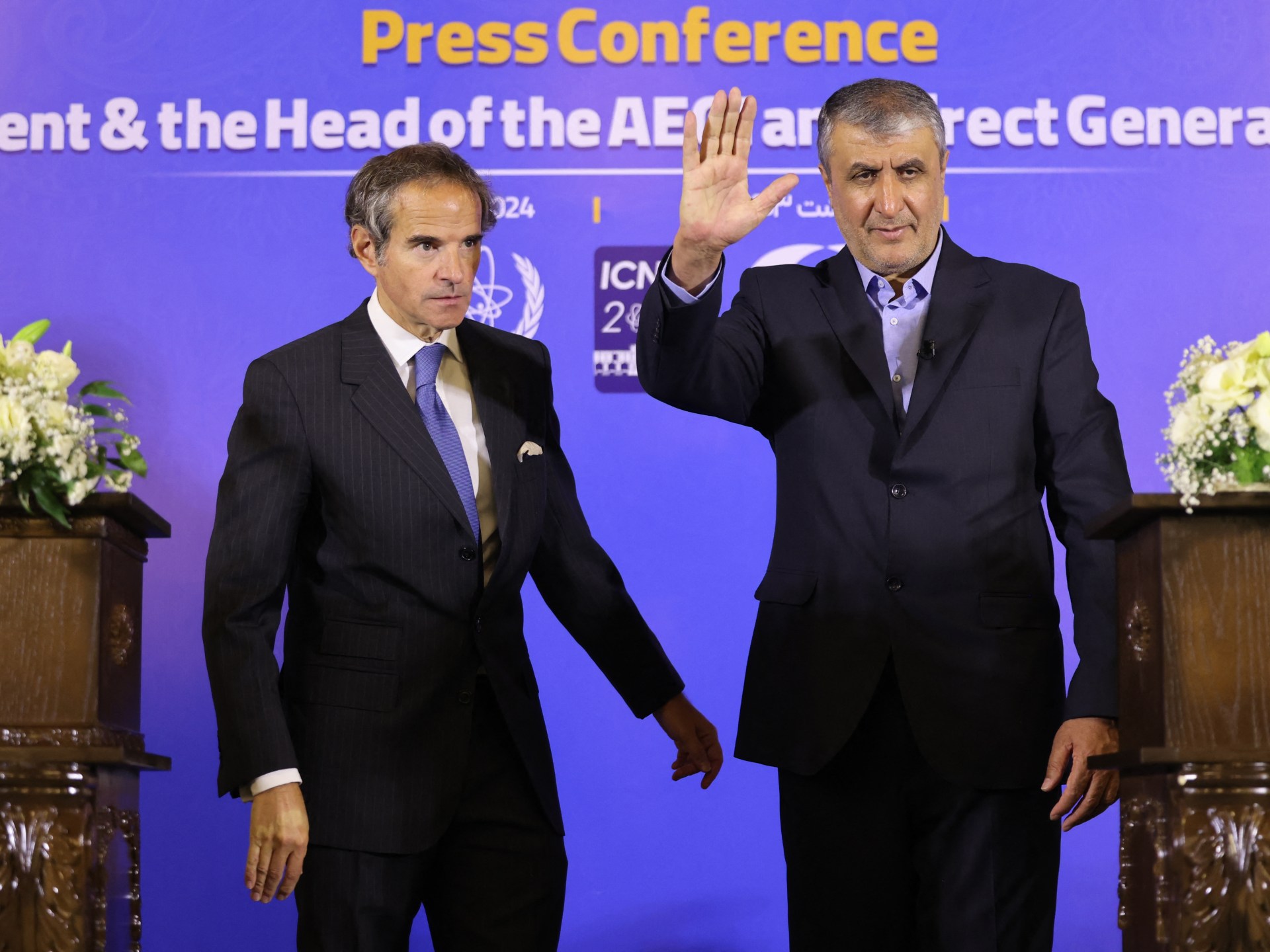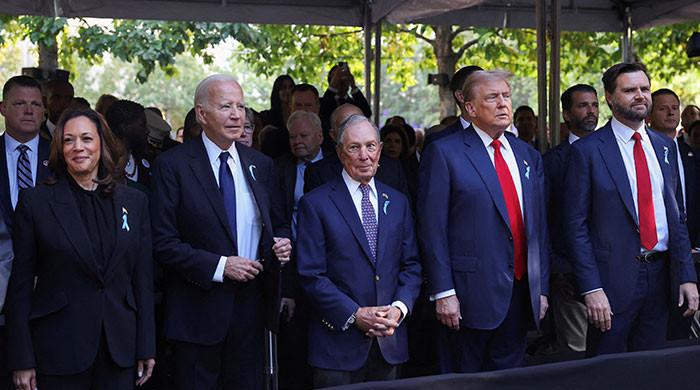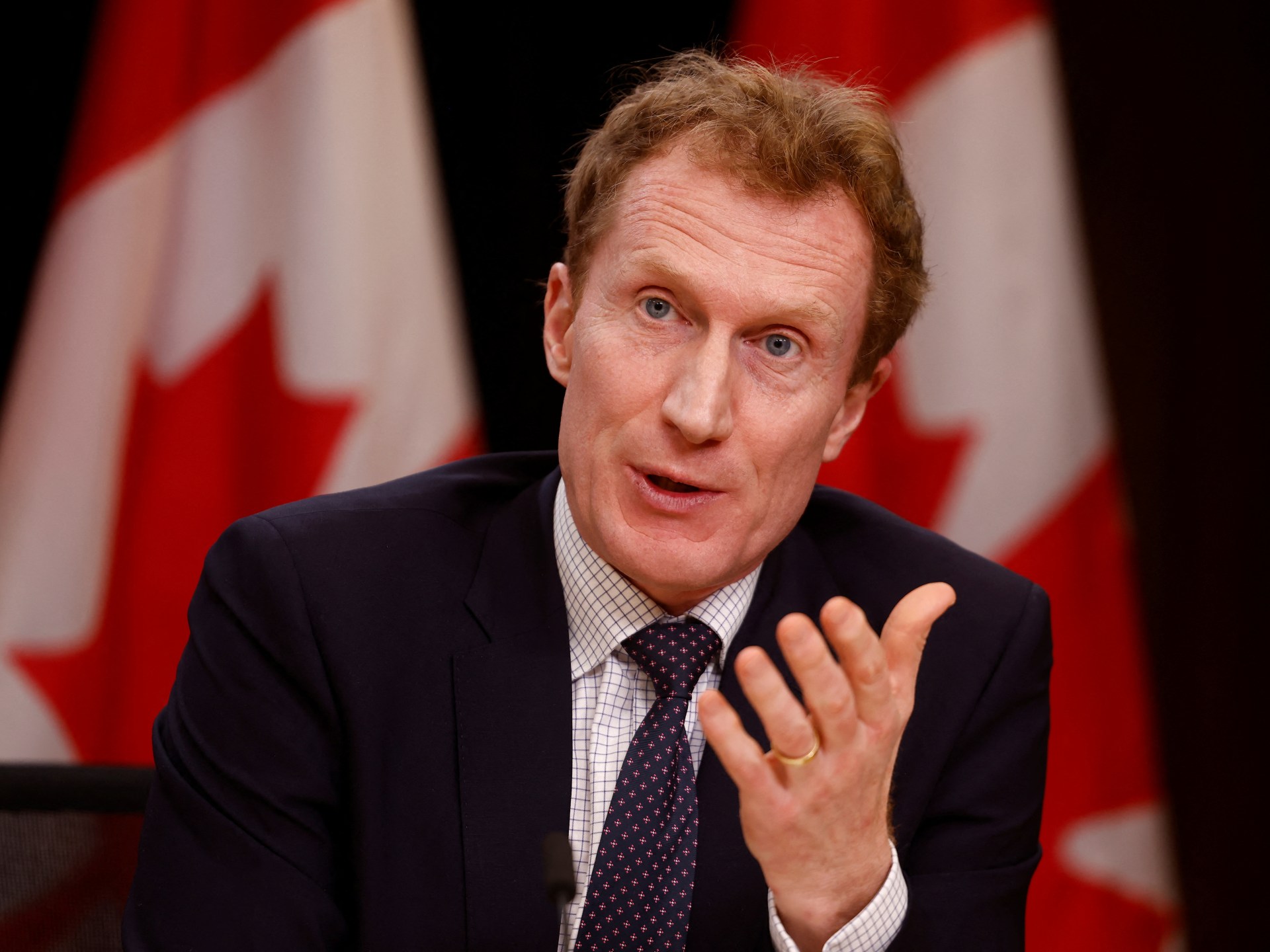Kamala Harris on Friday unveiled an economic plan packed with popular measures to cut costs for Americans while attacking powerful corporations for price gouging, as she developed her campaign platform ahead of the Democratic National Convention.
The speech in North Carolina — a key battleground state — was the first time Harris, who jumped into the race against Donald Trump less than a month ago, laid out a vision for combating inflation that has left voters unhappy with her boss, President Joe Biden.
Pledging to champion an “economy of opportunity,” he said “middle class development will be a defining goal of my presidency.”
In an effort to connect with voters angry at Biden, Harris recounted her modest background, noting that she had worked at a McDonald's during college.
And he acknowledged that while “by any measure, our economy is the strongest in the world… many Americans still don't feel that progress in their daily lives.”
Taking a cue from Trump's populism, he floated the idea of offering large tax breaks to families with children, help accessing government-subsidized health care and support for first-time homebuyers.
This follows an announcement Thursday that the White House has negotiated reduced prices for retirees who buy common drugs from major pharmaceutical manufacturers.
Harris also called on Congress to pass a first-ever federal ban on so-called “price gouging” by food companies that unfairly raise prices.
The convention opens Monday in Chicago and the proposals were intended to shape a campaign that has generated enormous enthusiasm in the Democratic Party but offer few details on how he would govern.
The vice president, who is seeking to become the first female president, hopes the headline-grabbing proposals will distance her from Biden's unpopular handling of price hikes that have hit ordinary Americans in the wake of the Covid pandemic.
Trump and Republicans are trying to tie Harris to Biden, 81, who abruptly dropped his re-election bid on July 21 and endorsed his vice president.
“Kamala Harris has been in office for three and a half years and all she has done is destroy the economy. Kamala can't get rid of the stench of Bidenomics,” the Trump campaign said.
Trump's campaign called it an “inflationary nightmare for American families” and claimed Harris's “vision is Soviet-style communism.”
Inflation is actually on a steady downward trend, while the US economy has avoided a much-feared recession, with strong job growth and stock markets at record highs. However, the lingering effects of the Covid-related shock are still being felt among regular consumers, ranging from the prices of some foods to high interest rates for home buyers.
What remains unclear is how Harris's generous tax breaks will be funded. The nonpartisan Committee for a Responsible Federal Budget said Harris's measures would cost more than $1.7 trillion over the next decade.
Billionaires versus middle class?
Harris, 59, has mirrored some of Trump's populist strategies, including a proposal to end taxes on restaurant workers' tips.
At the same time, Harris is contrasting the economic vision of the 78-year-old Trump by presenting himself as pro-billionaire and risking a dramatic increase in costs for Americans with her proposal to impose 10-20 percent tariffs on global imports.
“Donald Trump fights for billionaires and big corporations… I will fight to put money back in the hands of working and middle-class Americans,” Harris said.
She said Trump's plan to impose widespread trade tariffs – in line with his protectionist policies – would result in importers passing on prices to consumers.
“He wants to impose what is effectively a national sales tax,” he said.
Much of Biden's economic agenda is being passed directly to Harris' campaign.
That includes his promise to eliminate “junk fares” that lure customers with a low price before adding extras and keeping the president's pledge not to raise taxes on those making less than $400,000.
Until recently, polls showed voters clearly preferred Trump to Biden on the economy. But Harris is already starting to offset that advantage, with a new University of Michigan poll showing her ahead.

